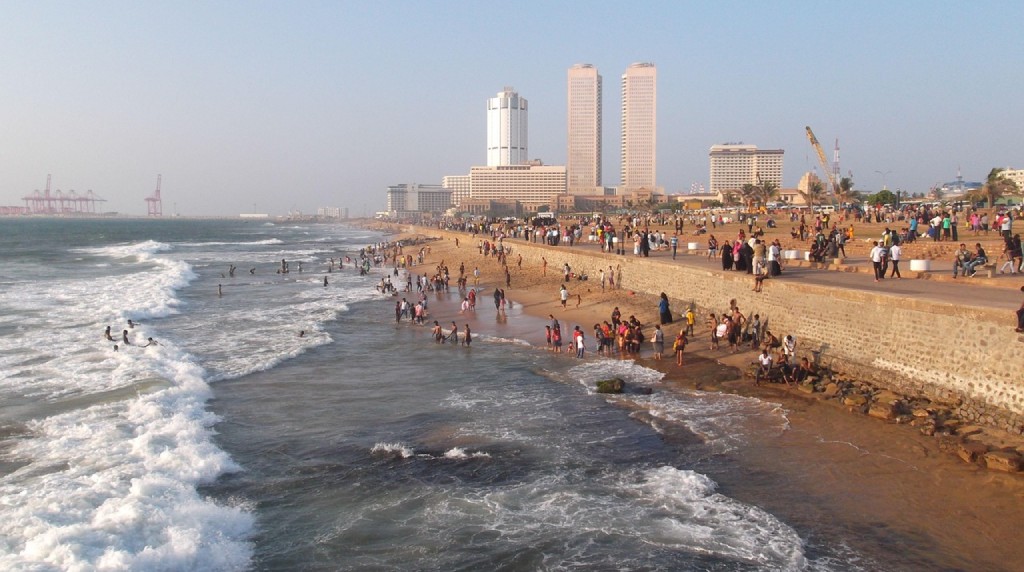German Regulator to Order ISPs to Block Lottoland
die Glücksspielbehörde (GGL) – the German federal regulator – intends to ramp up the pressure on internet service providers to either block Lottoland or risk the consequences.

GGL had suggested earlier this year that it wasn’t encroaching on anyone’s right with its approach. ©Lars Kienle/Unsplash
After enjoying success with regard to convincing a number of payment gateways to stop working with Lottoland, the GGL has set its sights on a new target – internet service providers. All internet service providers have been directed to block Lottoland’s services in Germany, failing which the regulator has warned of severe financial penalties.
The newly-formed regulator has channeled its efforts towards blocking Lottoland’s services as their first order of business, and has issued a strong statement on its website with regard to not just the new order to ISPs but also the progress it has made so far with respect to getting payment providers to half services to Lottoland.
“In the case of the proceedings against the Lottoland Group, the first two administrative proceedings regarding network blocks were already initiated in July with the aim of having access to the court-determined unauthorized offer of the Lottoland Group blocked. At the beginning of October, three further ISPs were requested to block the Lottoland Group’s websites. The addressees are thus the five Internet service providers with the highest revenues.”
Why Lottoland?
Under the newly formulated rules that permit online gambling in Germany, betting on lotteries is one of the few forms of gambling that remains illegal. The GGL considers Lottoland’s services to be illegal, because the operator doesn’t offer players the chance to participate in lotteries – it allows them to bet on the outcome of other lotteries.
This is a matter of significant contention for the GGL, whose social obligations to ban all forms of illegal online gambling have been made clear. In the same statement regarding the block notice to ISPs, the GGL elaborated on why taking action against Lottoland is important to its purpose.
“The network of companies operating under the name Lottoland has been offering illegal gambling for years. This offer is particularly precarious, as many players believe that they are participating in a lottery game at Lottoland. However, this is not the case. The offers made by Lottoland at www.lottoland.com and www.lottohelden.de and www.lottohelden.com are bets on the outcome of a lottery draw instead of participating in the actual lottery draw. These offers are not permissible on the basis of the State Treaty on Gaming and have therefore already been prohibited. However, they can still be accessed on the Internet. For this reason, the first legal steps taken by the Gemeinsame Glücksspielbehörde der Länder were aimed at preventing Lottoland’s offerings by means of administrative procedures on network blocking and payment blocking.”
The GGL – A New Watchdog Set to Bare Its Teeth
In July 2022, Germany moved to legalize online gambling across the country. Apart from legalizing online gambling, these laws laid down the ground rules for operators – including a slew of restrictions – while also aiming to clamp down on all illegal gambling websites.
The GGL was formed with the specific intent of shutting down the presence of illegal gambling sites in Germany, while also being tasked with preventing money laundering and looking after the well-being of players. The newly-formed watchdog replaced the Saxony-Anhalt State Administration Office and started operations from the moment the new regulations were passed.
This was not a matter of simply rechristening the regulator, but also giving it more teeth. The GGL has significantly more powers than its predecessor did, with the power to enforce IP and payment gateway blocking of illegal gambling sites across Germany.
In a statement released on their website earlier this year, board member Benjamin Schwanke commented on just how instrumental these powers would be in the fight against illegal online gambling sites.
“For the first time, enforcement instruments such as payment interdiction against illegal gambling offers on the internet are being used from one source. This enables us to take more effective action against providers. By bundling resources, undesirable developments and illegal gambling can be detected and counteracted more quickly in the future.”
The GGL and Internet Service Providers
ISPs are key to the new regulator’s ambitions to eradicate illegal online gambling in Germany. When illegal online gambling websites do not cooperate with a prohibition order to stop offering their services in Germany, the GGL is empowered to request ISPs to block the IPs of said websites.
The term ‘request’ is used in this context, because such is the nature of the relationship between the GGL and ISPs. The GGL may informally request ISPs to block a website, and providers in return may choose to cooperate and block the site amicably. Were such a request to be refused by ISPs, the GGL could initiate administrative proceedings, which could even lead to an administrative order being reviewed in court.
It is in the interest of the GGL to go about blocking these sites through mutual cooperation, which is why it has made efforts to reach out to ISPs across the country.
In a letter addressed to ISPs across Germany, the regulator requested ISPs to cooperate with their requests to block sites offering illegal online gambling services in Germany without administrative proceedings. This request came with the assurance that if ISPs were to cooperate, the GGL would be in a position to foster a safe, secure, and legal online gambling ecosystem that would benefit all stakeholders.
The regulator has acknowledged that this approach has led to several questions from ISPs and other concerned parties, and posted a statement on their website answering some FAQs. One of the biggest concerns when it comes to IP blocking is the constitutionality of such a request, to which the regulator said that their interventions were justified and affected parties can use courts as safeguards.
“Digital freedoms are a valuable asset that must be protected. We are aware that network blocking represents an encroachment on the fundamental rights of providers, suppliers and users. The social mission of the GGL is to fight illegal gambling in order to protect players and minors from gambling and betting addiction and game manipulation. Against this background, we consider these interventions to be justified and thus permissible. They meet the requirements of proportionality. We have also taken into account the relevant European regulations, in particular the freedom of service and freedom of establishment and the requirements for net neutrality. Here, too, we come to the conclusion that these are not violated by blocking the illegal offerings. The proposal we have submitted does not stand in the way of a judicial review of our views. Those affected can have their rights reviewed by the courts.”



